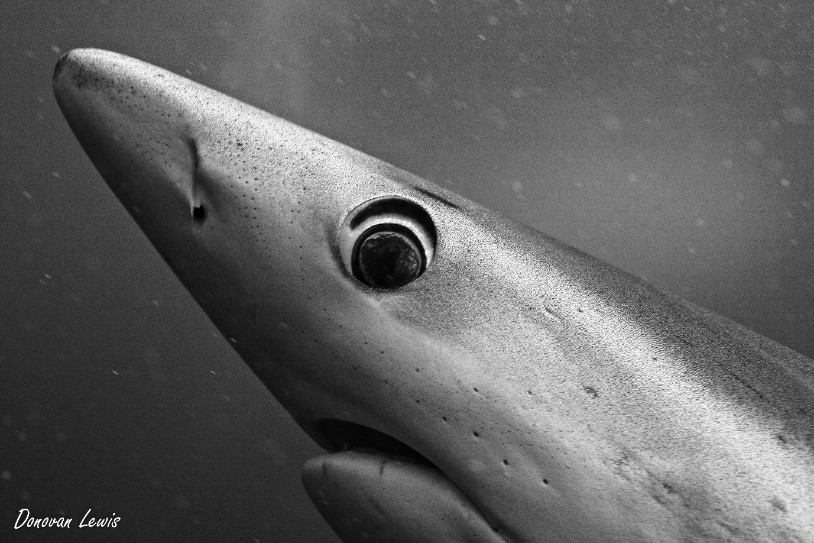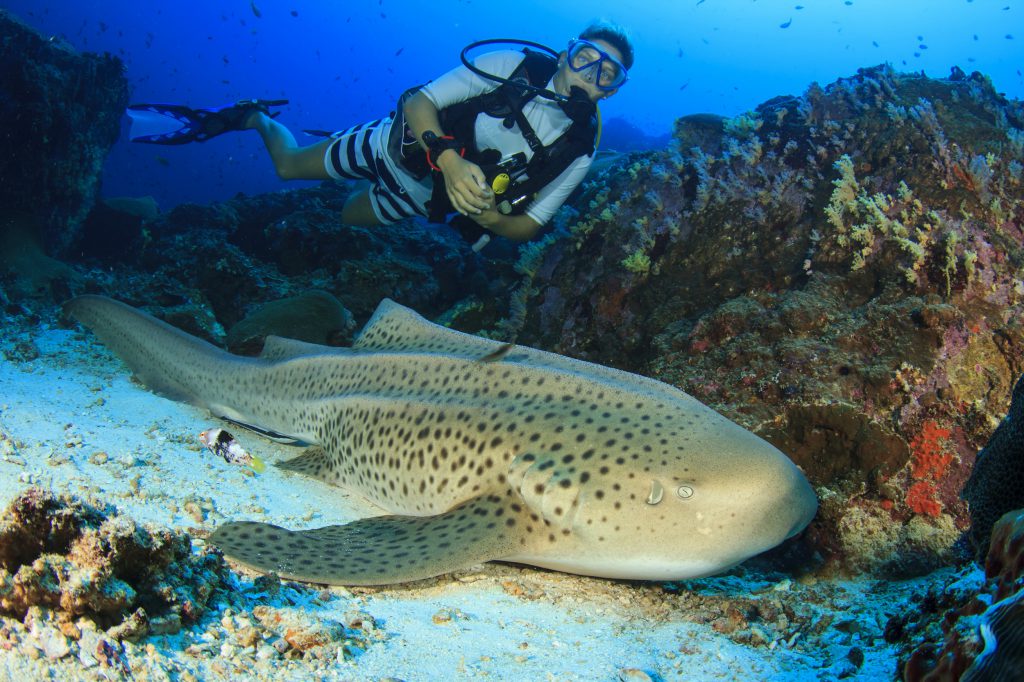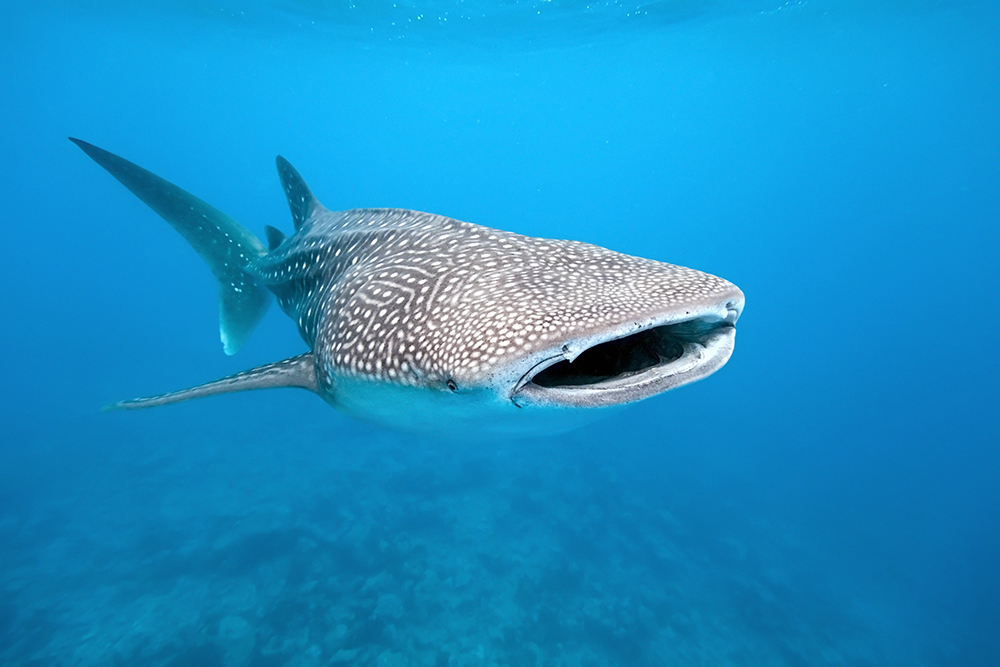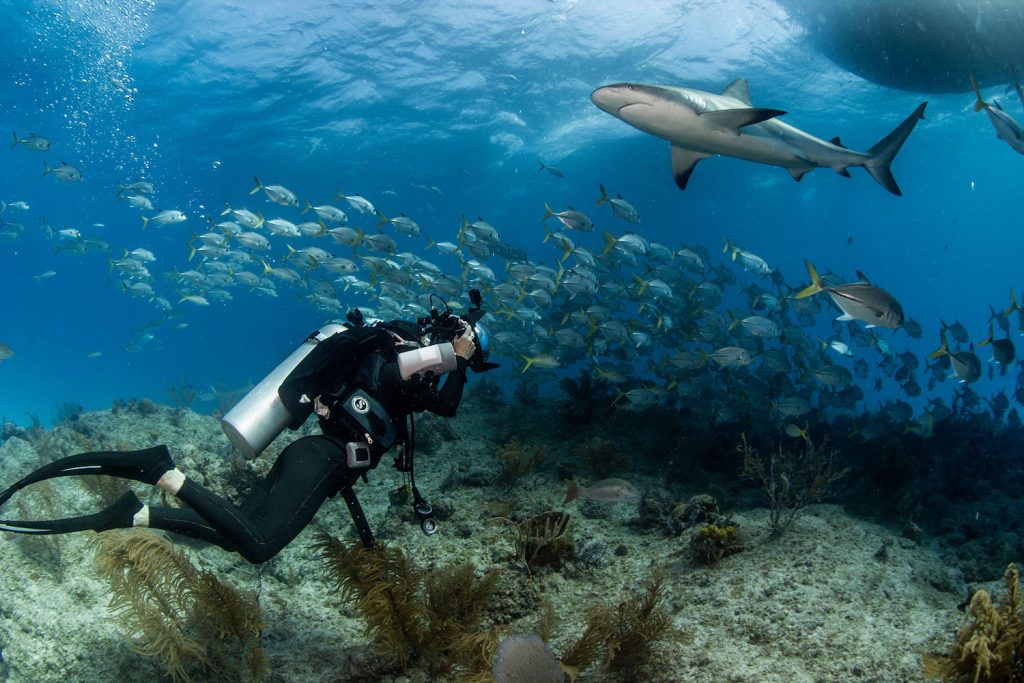Being afraid of sharks is totally normal. You wouldn’t be here today if your ancestors didn’t stay away from things with pointy teeth. But you shouldn’t let a fear of sharks prevent you from experiencing the beauty of the underwater world.
Look at it this way: dogs kill 25,000 people every year, but tens of millions of people have a pet dog. Why? Because most dogs are harmless.
The vast majority of sharks are harmless too. Only four out of the 400 different types of sharks have a reputation for unprovoked attacks on humans (great whites, tiger sharks, bull sharks and oceanic whitetips).
The media portray sharks as mindless killers, but that’s simply not the case. Humans are around sharks more often than they realize (nearly every surfer on dawn patrol, for example) and only the tiniest fraction of human-shark interactions result in a bite.
Want to get over your fear of sharks?
Follow these steps:
Step One: Acknowledge and Accept Your Fear
Movies and TV shows condition us to be afraid of sharks… and carbs… and cars that explode moments after a collision (you get the idea). If all you know about sharks is what you’ve seen on a screen, it’s totally reasonable to be afraid of them. Once you recognize you’ve only heard one side of the story (the bad side), you’re ready for step two.

Step Two: Learn the Facts
The odds of being killed by a shark are 1 in 3,748,067. Compare that to:
- 1 in 193 – the odds of dying from accidental poisoning
- 1 in 272 – the odds of dying in a car accident
These stats may not exactly put your mind at ease, but the point is: your life is full of dangerous activities including 18 everyday things more dangerous than sharks. People simply choose to accept the risks and carry on.
Only 4 percent of shark bites happen to divers. The International Shark Attack Report tracks what people were doing prior to getting a shark bite, 92 percent were participating in surface activities. Here’s how it breaks down:
- 61 percent surfing/board sports
- 26 percent swimming/wading
- 5 percent bodysurfing/horseplay
- 4 percent scuba diving
Many shark “attacks” happen in and around fishing areas. The attack is actually a defensive bite because the shark is trying to escape a net or hook.
Sometimes snorkelers and spearfishers swim into the middle of a bait ball and may accidentally get “attacked” by a shark trying to snap up a fish. If you stuck your hand into a dog’s bowl when it was eating, would you consider that an attack?

Fun fact: Shark Week host Dr. Craig O’Connell was once afraid of sharks. Now he’s a passionate advocate for shark conservation and protection.
Step Three: Watch Shark Videos
Sensational shark shows tend to focus on great whites and tiger sharks, but there are many, many other types of sharks. Search YouTube for videos about whale sharks, basking sharks or thresher sharks and you’ll learn why divers put these animals at the top of their bucket lists.
Need more? Documentary films such as Sharkwater or Shark Girl can be an effective antidote to the negative messaging about sharks you’ve seen throughout your life. True story: after watching Sharkwater, shark bite survivor Mike Coots decided to get back in the water with tiger sharks. He wanted to turn his negative experience into a positive message.
Step Four: Focus on Your Motivation
Maybe you’ve always wanted to swim with the dolphins or whales or experience the manta ray night dive in Hawai’i. Start a list or make a YouTube playlist to remind you why you want to learn to freedive or become a scuba diver. Keep your eye on the prize and don’t focus on your fear.
Step Five: Speak to Someone Who Can Relate
If you’re still feeling apprehensive, talk to your scuba instructor or a diver you know about your concerns. Don’t be shy. Divers constantly get asked, “have you ever seen a shark?” or “aren’t you afraid of sharks?”
There’s a good chance you’ll meet a diver who used to be scared of sharks — until they saw one underwater. After that first encounter, it’s like a switch flips. Once you realize the shark has zero interest in you (or is even afraid of you). The scary predator simply becomes one of many fascinating creatures you look forward to seeing underwater.
Don’t Let Fear Hold You Back
If the steps above don’t help you move forward, you can still achieve your diving dreams. There are hundreds of shark-free lakes, rivers and quarries around the world.






